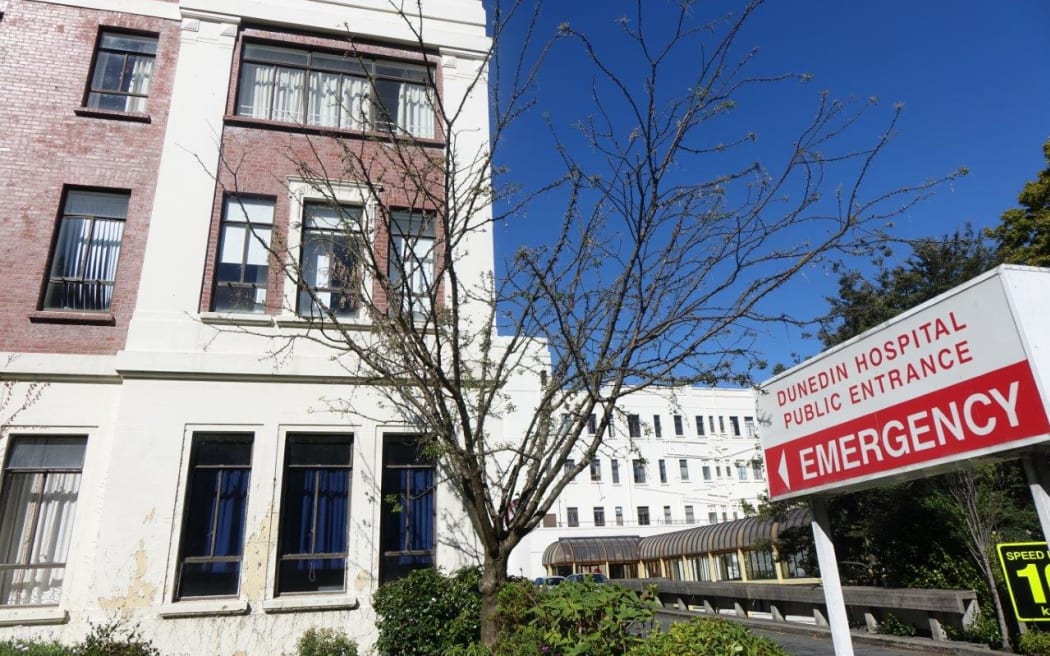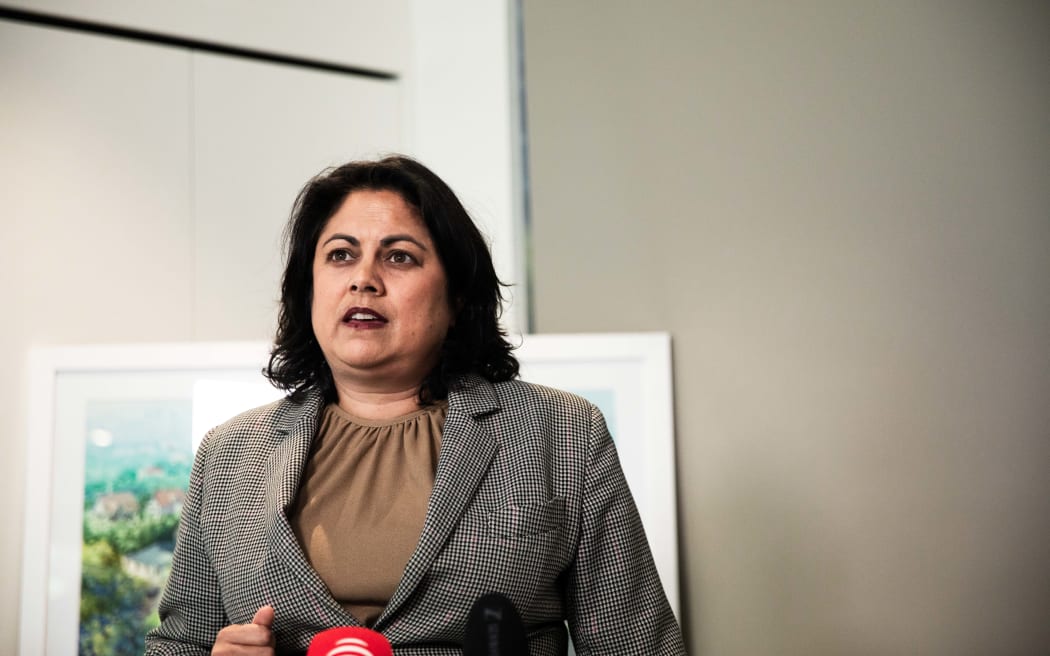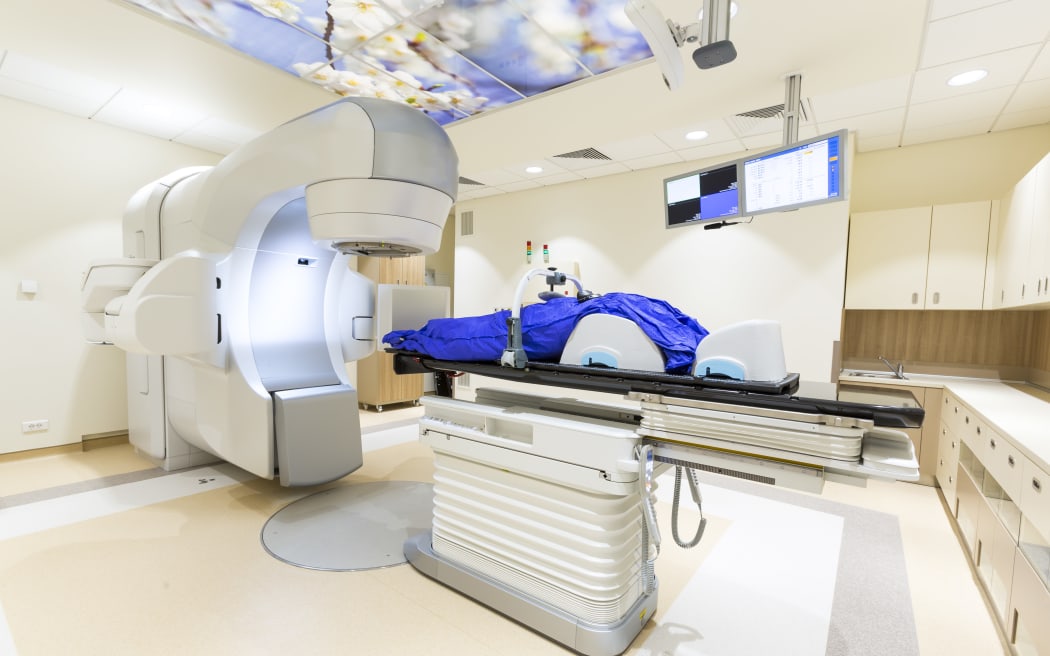Dunedin Hospital faces losing right to train junior cancer doctors

Dunedin Hospital has been losing ground in key ways on cancer services as it approaches a deadline to prove it is doing better, but health authorities say the services are well supported.
A three-month deadline falls due on Tuesday to show improvements, set in a Health and Disability Commissioner (HDC) report in April which found cancer patients were harmed for years by long wait lists, little support, and poor leadership in the southern district of 300,000 people.
But since April, the hospital has been put on notice by assessors over its right to keep training junior cancer doctors. The assessors raised the staff shortages with the health minister, and the hospital is losing another senior cancer doctor next month - its director of training - which would make it fall well under half the number it needs.
Nonetheless, Te Whatu Ora said 90 percent of patients were getting their treatment on time.
"We are addressing our workforce challenges and we've met all the critical elements of the HDC report," hospital and specialist services district director Dan Pallister-Coward told Morning Report on Monday.
"I am really confident, as is our clinical team, in the quality of care that they provide and the additional support that we've put in.
"We're committing to delivering a timely service."
The district was patching the gaps with three short-term locums - ring-in doctors, two of the three based in Wellington and Auckland who do tele-checks on patients - and by sending some patients for treatment for weeks at a time to Christchurch and other centres.
However, the pressure has continued on its radiation oncology unit, which should have at least eight senior doctors but has just 3.6 full-time equivalents, with that set to drop to 2.6 next month when the training director goes.
Fewer seniors mean supervision of the district's four juniors becomes more difficult.

Assessors from the Royal Australian and New Zealand College of Radiologists checked out Dunedin's training programme in May and later met with Health Minister Ayesha Verrall.
Verrall talked with them about "radiation oncology workforce shortages - particularly in regards to senior medical officers in the southern district, and how the college intends to work with Te Whatu Ora to address issues associated with retaining training accreditation", her office said.
She announced a national medical workforce booster plan last week, saying the government had boosted doctor numbers by 16 percent since being elected.
If southern's four juniors are forced to go to train at other major hospitals, this would put more pressure on seniors there, who already are having to train an extra five juniors after the government expanded the training programme numbers this year.
Dunedin was "a prime training centre for clinicians", Te Whatu Ora said.
The radiologists college was helping them recruit a specialist head and neck consultant from Australia in the next six to eight weeks, to stay till at least the end of the year, Pallister-Coward said.
"We are confident that the ongoing work we are doing to recruit and retain staff will ensure our [training] accreditation is retained," he said.
The college did not respond to requests for comment.

The district was in the final stages of negotiating with three senior radiation oncologists overseas to come to Dunedin, Pallister-Coward said.
They had "really good, strong and robust plans in place" to cope till then.
Locals worried about the services say overseas hires have been talked about before but not eventuated.
Pallister-Coward said the separate department of medical oncology had just recruited a new staffer. "The college has not identified any areas of concern" with that particular service.
"We are able to achieve all the immediate recommendations the HDC report recommended," he said. "And we're continuing to work on some of the recommendations that are more long term."
Some patients were being sent for treatment at private providers, though these are all outside of the district.
Those sent to other public hospitals have their accommodation and other costs met by the public system, which is very costly.
The Cancer Control Agency is also due to report back to the HDC on Tuesday about what it has done with Te Whatu Ora to address cancer service delays.
"We expect the update to be with the HDC by the end of next week," it told RNZ.
"Our update will reflect our work with Te Whatu Ora as they have taken action since that time."
The HDC has directed the agencies to update it on how they are reducing geographical disparities, using new technologies and medications, and addressing capacity issues. It wanted a cancer services recovery plan for the workforce set up to cover the next three years.